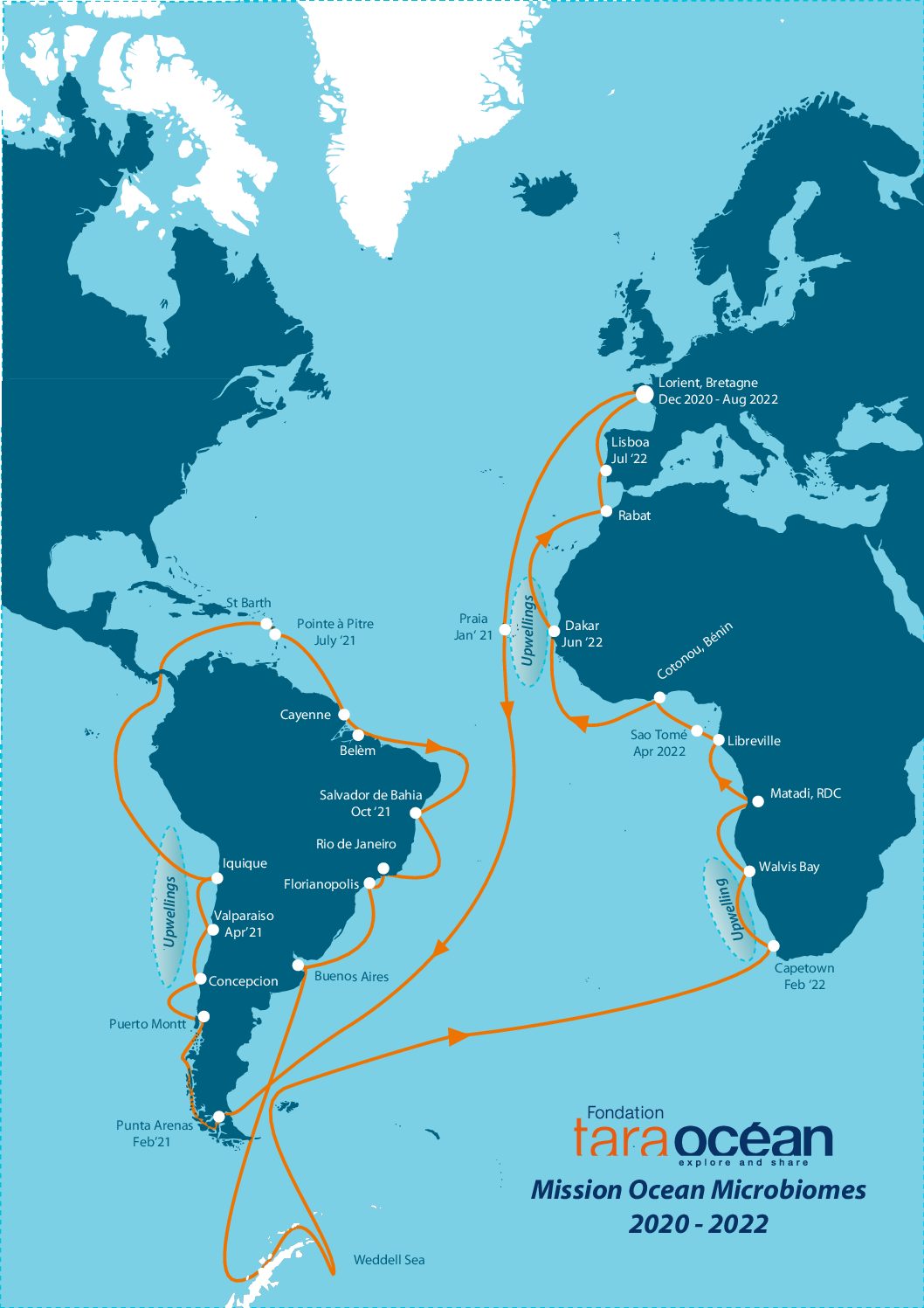On September 12 2018, the GO-SEE Research Federation (Ecology and Evolution of Global Ocean Systems) was launched looking for the modeling of the global plankton system.
There are eleven international research institutions that seek to understand the fundamental principles of evolution and ecology by modeling life in the oceans and making sense of it through the use of different probabilistic techniques, dynamic systems and data science. This group includes the Center for Mathematical Modeling (CMM) of the University of Chile as an International Mixed Unit of the CNRS in France. The initiative is led by the Tara Foundation, under the supervision of the same CNRS, CEA, IRD, five French universities and EMBL.
The objective of the federation is to discover the structure and dynamics of the plankton ecosystem at a temporal and spatial level on the planet. This will do so taking into account species and taxonomic approaches. The research will allow a planetary modeling based for the first time on the reality of the biological complexity of the ecosystem.
It will gather 12 scientific disciplines and implement the latest technologies in plankton collection, DNA sequencing, automatic imaging, mathematics, bioinformatics and physics for the holistic study of the ocean. These investigations initiate a crucial process in the understanding and modeling of the Earth system.
The work will be able to describe the dependencies and interactions between the biological, physicochemical and climatic data of the ocean. An ambition that is only possible thanks to recent developments in mathematical modeling and data science.

